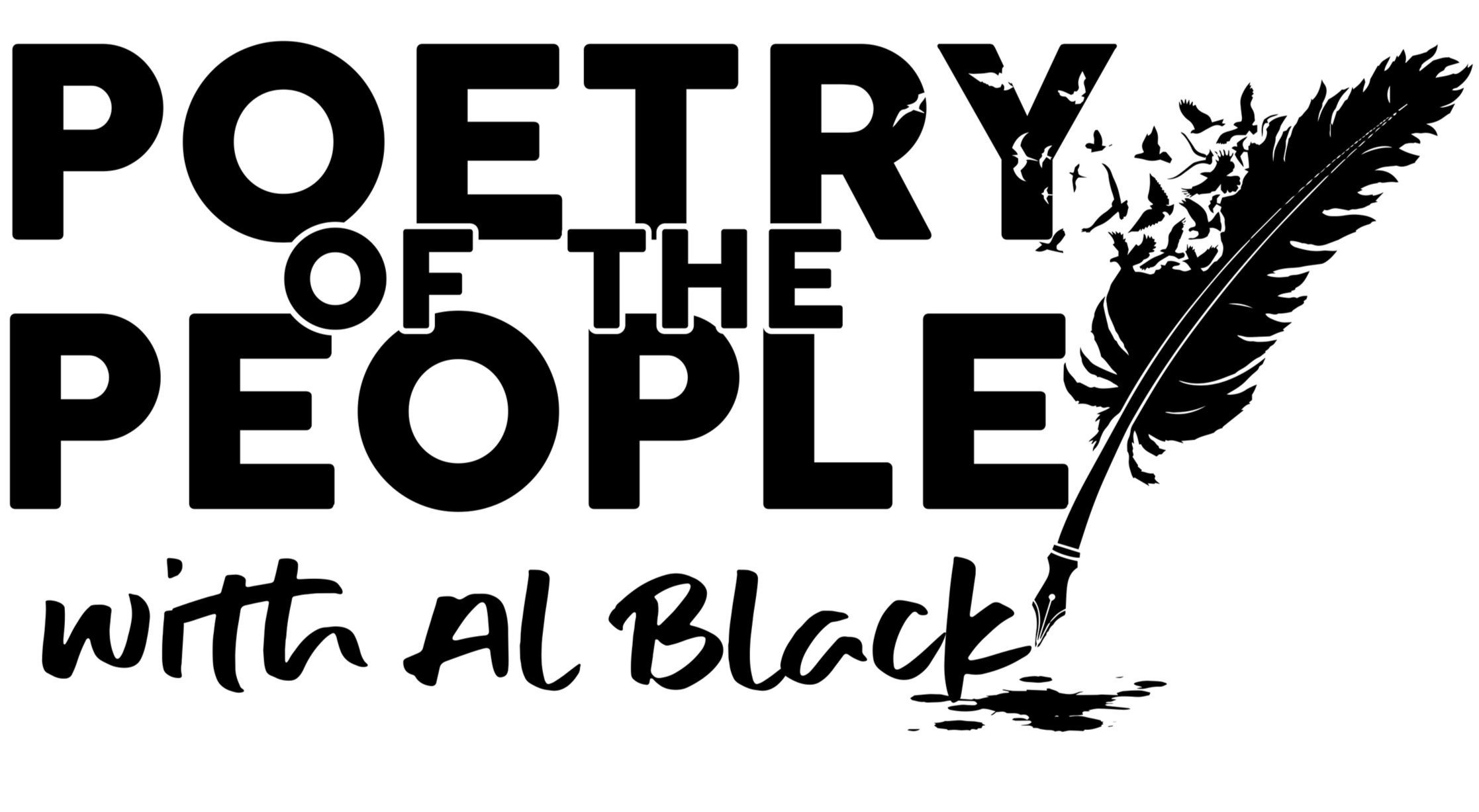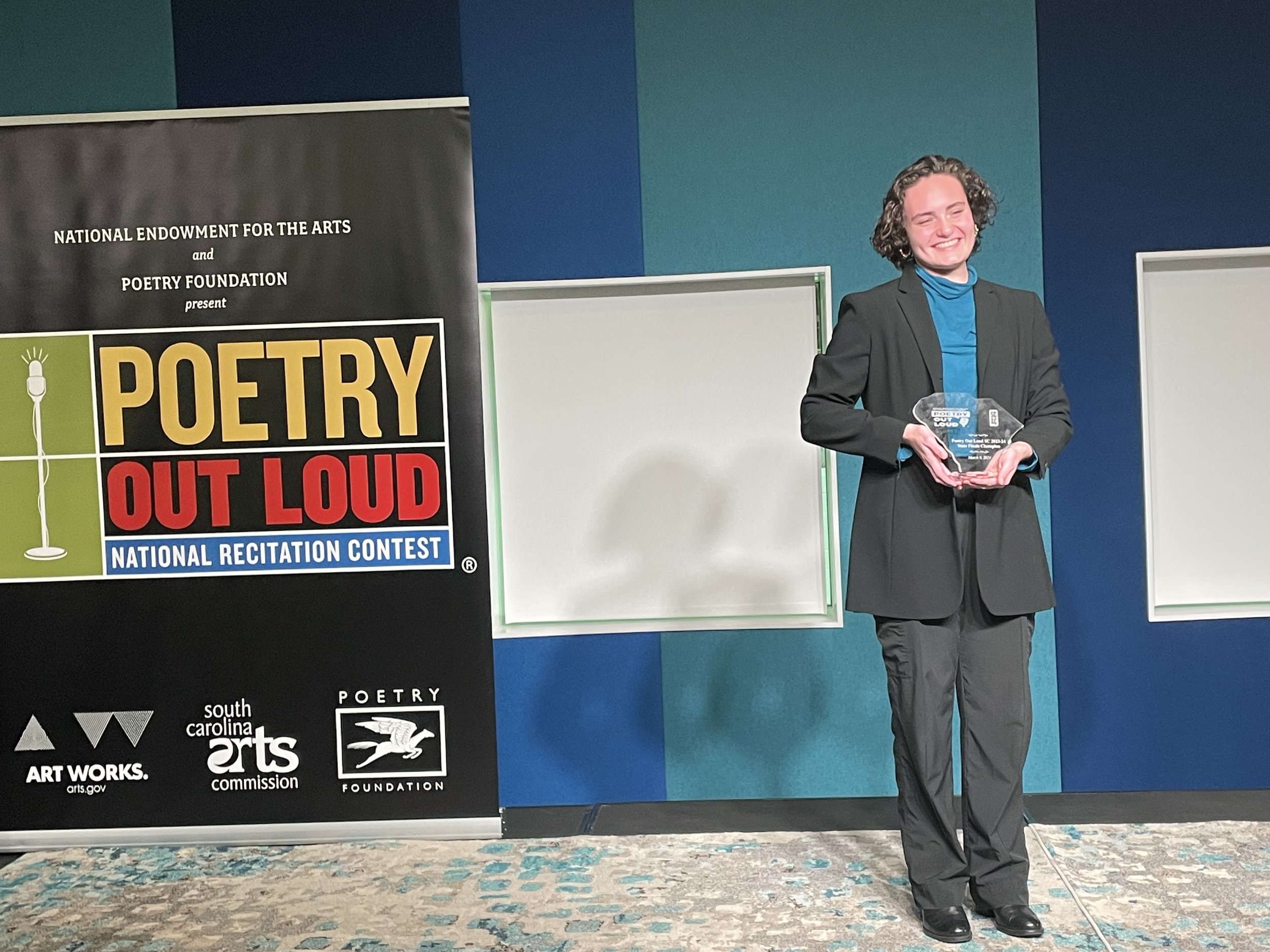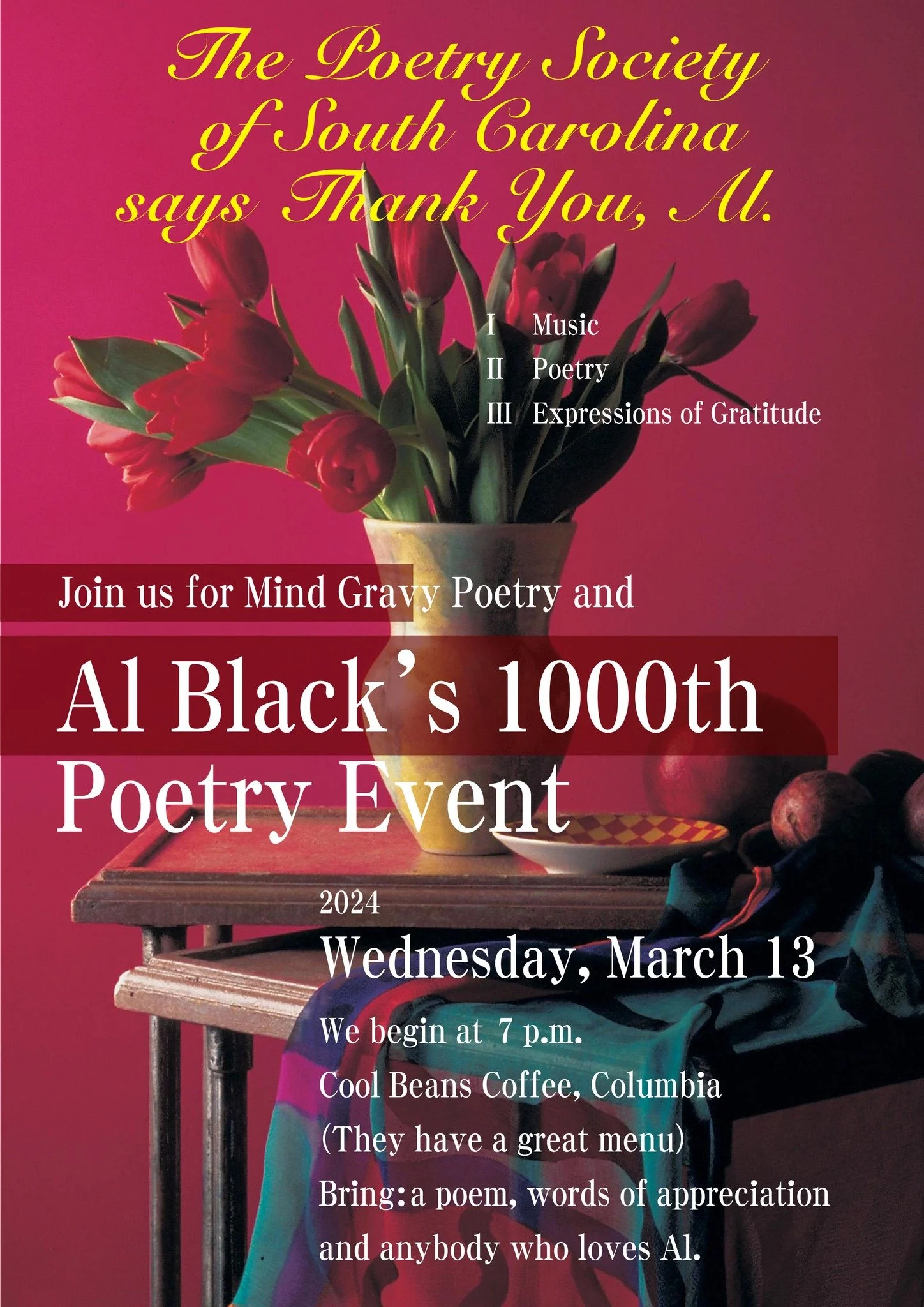This week's Poet of the People is Lang Owen. Before the printing press, balladeers carried poetry and news to the people; Lang Owen writes in that tradition. He is a gifted singer/songwriter who writes poem songs about people and the human condition. Every so often you meet someone who paints stories that sound new every time you hear them sung - I am privileged to know Lang Owen. www.langowen.com/
-Al Black
Lang Owen works straight out of the 1970s singer-songwriter tradition, employing poetic lyrics to express the challenges and possibilities of the current day, often viewed through the perspective of individual's imagined interior lives. Lang’s gift for seeing the world around him and dialoguing with others about their lives informs his songwriting, which often takes the form of conversations between characters in his songs. Lang released his third album, Cosmic Checkout Lane, in April 2024, his second collaboration with musician/producer Todd Mathis. “Cosmic Checkout Lane is about living our wisdom at any moment, including standing in a grocery store checkout line,” Lang says.
In 2022 Lang released She’s My Memory, which the Post & Courier Free Times ranked sixth on its The Best of South Carolina Music 2022 list. Lang’s 2019 debut album Welcome To Yesterday was hailed as “evocative storytelling at its finest” by music writer Kevin Oliver. Lang has played multiple venues in North and South Carolina, and received airplay on radio stations in the United States, Canada, Ireland, and Luxembourg.
Everybody Here
Everybody here’s my therapist
I need all the help I can get
I look around, I’m losing my ground
I don’t like what I see one bit
I float by like a whisper, you hand me a megaphone
In our own little worlds somehow we’re not alone
We’re not alone
Everybody here
Everybody here’s my archeologist
Digging in the dirt for things I miss
Down on hands and knees beneath the olive trees
Finding my love still exists
We live in memory like statues standing in Rome
In our own little worlds somehow we’re not alone
We’re not alone
Everybody here
I don’t know what I’m dreaming any more
I just know you’re believing
I don’t know whose shoes are on my floor
I just know you’re not fleeing
What I can do is wash your feet
Patch you up when you’re bleeding
I’ll keep your secrets discrete
I’ll say what you’re meaning to me
I float by like a whisper, you hand me a megaphone
In our own little worlds somehow we’re not alone
We’re not alone
Everybody here
Gravity
I’m not a smart man, but I know gravity
I drop nails from many a roof, it’s physics obviously
Don’t take paper in a frame to see that things fall
I’ve done this job for twenty-eight years, I’m a jack of all trades
I fix everybody’s leaky walls, water moves in strange ways
Don’t take paper in a frame to know a hammer’s what you need
House to house, I drive around, lots of new cars everywhere
From my truck, I see it clear, this town’s in disrepair
I guess that’s why God put me here
My knees are shot, all the ups and downs, I tell my boy get your degree
I’ve done some things of which I’m proud, it never came easily
Don’t take paper in a frame to know what builds you breaks you down
House to house, I drive around, lots of new cars everywhere
From my truck, I see it clear, this town’s in disrepair
I guess that’s why God put me here
I paint all your empty rooms, I like the smell of something fresh
I leave a little bit of me in there, where your baby lays down to rest
Don’t take paper in a frame to know love’s all in your hands
House to house, I drive around, lots of new cars everywhere
From my truck, I see it clear, this town’s in disrepair
I guess that’s why God put me here
Love Sputnik
Mr. Hardy taught the sciences, the stuff of life
Backrow kids mocked thinning hair and tattered ties
Astronomy was his true love, Mr. Hardy had no wife
Russia launched first satellite shook the world
Beep beep on ham radio, spaceage unfurled
Mr. Hardy daydreamed at his desk of a long-lost girl
Oppenheimer called out God
Galileo searched the stars
Mr. Hardy lectured genius does no tricks
Sir Iassac’s apple fell to ground
Einstein wrote it simply down
Mr. Hardy questioned who on earth invents
Love Sputnik
18,000 miles an hour light across the sky
Mr. Hardy said change rockets into our lives
When she burned up in the atmosphere, Mr. Hardy cried
I recall a film about the sun Hardy showed
Man in glasses explained giant stars someday explode
In the cosmic scheme of things no one is betrothed
Oppenheimer called out God
Galileo searched the stars
Mr. Hardy lectured genius does no tricks
Sir Iassac’s apple fell to ground
Einstein wrote it simply down
Mr. Hardy questioned who on earth invents
Love Sputnik
Mr. Hardy gazed alone at night crescent moon
Mr. Hardy knew she’s inching away too soon
Mr. Hardy retired from everything that very June
Oppenheimer called out God
Galileo searched the stars
Mr. Hardy lectured genius does no tricks
Sir Iassac’s apple fell to ground
Einstein wrote it simply down
Mr. Hardy questioned who on earth invents
Love Sputnik
Man With A Broom
Thirty years I swept floors, F & M Bank
Retired with a big mug, too many last hugs
Cards and thanks
Now I use a red broom, sweep my curbside
Photos, bottles, pennies, cigar butts
You know it’s not right
My sight is still good, careful when the cars pass
My doctor says she’s never seen a man my age
With such a strong back
I’ve got so little to leave this big world
I never had a son or a precious little girl
I’m just an old man with a broom
On the street in the sun Monday afternoon
Man with a broom
I found a brown shoe on the sidewalk nearby
My whole day puzzling what happened to that foot
Can’t say why
My shadow tells time, I don’t wear a watch now
I can see no point in counting the hours
As they wind down
Who’ll pick up this broom? Nobody wants to sweep
I’m scared things all go to hell when I fall into
That long sleep
I’ve got so little to leave this big world
I never had a son or a precious little girl
I’m just an old man with a broom
On the street in the sun Monday afternoon
Man with a broom
Neighbor kid walks by with those earphone things
Give me a listen, though it don’t beat Bob Dylan
My heart still sings
Wife calls me inside, says I’ll die from the heat
But this broom’s what I’ve got, and I’ll sweep ‘til I drop
On this clean street
I’ve got so little to leave this big world
I never had a son or a precious little girl
I’m just an old man with a broom
On the street in the sun Monday afternoon
Man with a broom
Used Books
I Sunday browse your shop for hours
We talk about writers when no one’s there
And you proclaim love for Hemingway
For your age that’s pretty rare
You say you can relate
To wine and war and fate
And how this life is so unfair
Your eyes ask me why, you wait for me to try
I scratch my head, I can’t help you there
You wanna be heard, you gotta listen
You wanna be read, you gotta buy somebody’s book
You wanna be found, you gotta know who you’re missing
You wanna be seen, you gotta really, really look
Oh I swear, my sweet Karina
I once told a girl you never mind my words
“I mind them too much,” she said with a smile
She vanished like a ghost in a cloud of cigarette smoke
I missed that coming by a country mile
I tell this tale to you, I’m no fountain of any truth
Might be the one thing I do today worthwhile
No doubt it’s been said by poets long since dead
There’s nothing in this world we can’t defile
You wanna be heard, you gotta listen
You wanna be read, you gotta buy somebody’s book
You wanna be found, you gotta know who you’re missing
You wanna be seen, you gotta really, really look
Oh I swear, my sweet Karina
Old Man and The Sea, I peruse with iced coffee
I’ll soon forget every page I turn
My days are scribbled down, torn up paper on the ground
Take what I say this once for what it’s worth
You wanna be heard, you gotta listen
You wanna be read, you gotta buy somebody’s book
You wanna be found, you gotta know who you’re missing
You wanna be seen, you gotta really, really look
Oh I swear, my sweet Karina










